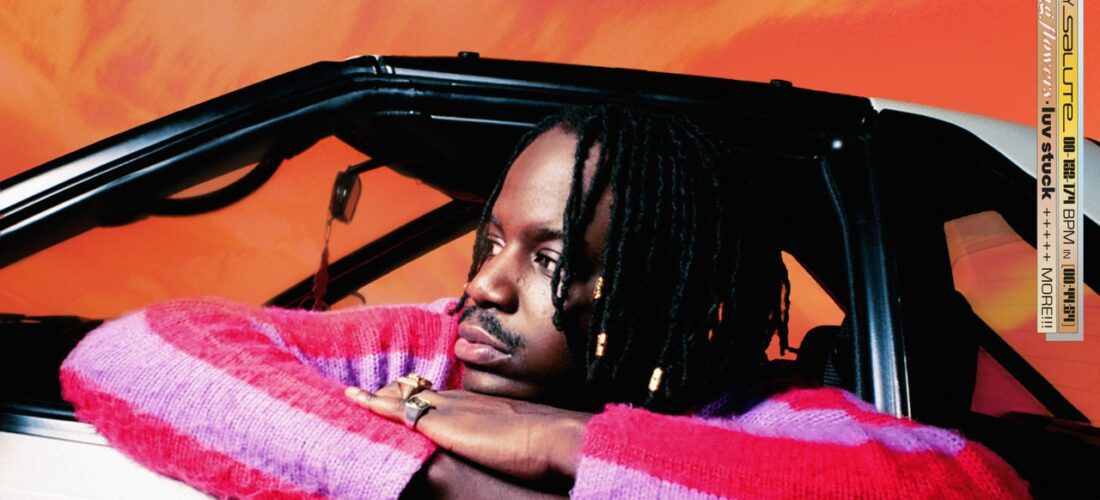Cars and pop music: They’re quite literally built to go together. Enter True Magic, the Ninja Tune debut from Manchester-based producer salute. Engines roar to life and cheers crescendo with each lap as producer Felix Nyajo shifts effortlessly across French touch, glitchy house, jungle beats, UK garage, and soul samples. Traversing genres with a pop sensibility alongside a heavy roster of collaborators, True Magic recalls Settle, the career-defining debut by Disclosure (who are featured on “lift off!”). salute and longtime friend and executive producer Karma Kid inject each track with LED-lit momentum and joyriding ease.
salute’s first full-length has been a decade in the making. In 2014, Nyajo relocated from Vienna to the UK, immersing themselves in the British club scene at a moment when the robust, metallic rhythms of future bass pioneers like Hudson Mohawke and Rustie dominated. That tectonic purple sound influence—chip-tune buildups pieced together with sludgy bass hooks—was audible in early salute releases. Since then, Nyajo has ironed out the aggressive drops, smoothing their style into what they’ve called “fast and soulful house music.” They’ve performed for Boiler Room crowds and worked alongside modern-day pop hitmakers (the 1975’s George Daniel) and fellow rising producers (DJ Boring, DJ Seinfeld, Barry Can’t Swim). Four Tet is a fan.
True Magic demonstrates the extent of salute’s evolution. Its songs are sculpted around glowing ’80s synthesizers, nodding to modern nostalgists like Daft Punk, Alan Braxe, and Kavinsky. The sleek, Weeknd-esque “Maybe it’s u,” featuring vocals from Scottish producer Sam Gellaitry, has the propulsive punch of Discovery and some of Ratatat’s cheese-grated guitar. Blending gritty bloghouse with elements of UKG, drum’n’bass, and jungle, salute emulates the aura of past hits without ripping them off. The results showcase their curatorial skill, fitting each track to their guests’ strengths. Empress Of’s satin vocals are the perfect vessel for romantic longing on “one of those nights”; piri’s cherubic tone in “luv stuck” is matched to bubblegum house on cruise control.
Nyajo locates True Magic’s inspirations in vintage Japanese car advertisements, a colorful, frictionless style of clip that matched shiny new automobiles to sentimental pop soundtracks and fuzzy graphics. A sample of the Japanese jazz fusion group Casiopea’s song “Asayake” on the intro nods to a similar time period, but salute doesn’t linger: They swiftly transition to the rubbery bass of “saving flowers,” with Rina Sawayama. It’s as satisfying as running a series o f green lights. The front half of the album’s French house tilt is abruptly (and thrilling) interrupted by “go!,” featuring Japanese rapper Nakamura Minami, whose high-energy, hyper-animated style previously landed her work in the racing game Need for Speed.
